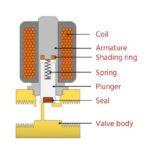DTS Monaco is a powerful diagnostic and programming software used extensively by Daimler AG for in-depth vehicle diagnostics, engineering, and ECU programming. Discover how DTS Monaco revolutionizes car coding and learn about specialized training at DTS-MONACO.EDU.VN to boost your automotive repair skills. Unlock advanced car coding techniques, improve diagnostic accuracy, and future-proof your career in automotive technology by exploring in-depth diagnostics, ECU flashing, and vehicle communication protocols.
Contents
- 1. What Exactly is DTS Monaco in the Context of Daimler AG?
- 1.1 Why Is DTS Monaco Important for Daimler AG?
- 1.2 Key Features of DTS Monaco
- 1.3 What Sets DTS Monaco Apart from Other Diagnostic Tools?
- 2. Who Uses DTS Monaco Within Daimler AG?
- 2.1 Diagnostic Technicians
- 2.2 Engineers
- 2.3 Car Coding Specialists
- 3. How Is DTS Monaco Used in Vehicle Diagnostics?
- 3.1 Reading and Clearing Fault Codes
- 3.2 Live Data Monitoring
- 3.3 Advanced Diagnostic Routines
- 4. How Is DTS Monaco Used in ECU Programming and Flashing?
- 4.1 Updating ECU Software
- 4.2 Reprogramming ECUs
- 4.3 ECU Cloning
- 5. What Is Car Coding and How Does DTS Monaco Facilitate It?
- 5.1 Enabling Hidden Features
- 5.2 Retrofitting Options
- 5.3 Personalizing Vehicle Settings
- 6. DTS Monaco vs. Vediamo: What Are the Key Differences?
- 6.1 Vediamo: In-Depth Overview
- 6.2 Key Differences
- 6.3 When to Use Each Software
- 7. What Hardware Is Compatible With DTS Monaco?
- 7.1 MB Star C4/C5
- 7.2 eCOM Interface
- 7.3 Considerations for Hardware Selection
- 8. Where Can You Get Training on DTS Monaco and Car Coding?
- 8.1 DTS-MONACO.EDU.VN
- 8.2 Other Training Resources
- 9. What Are the Benefits of Learning DTS Monaco and Car Coding?
- 9.1 Enhanced Diagnostic Skills
- 9.2 Increased Earning Potential
- 9.3 Career Advancement
- 9.4 Staying Ahead of the Curve
- 10. Real-World Applications of DTS Monaco in Automotive Repair
- 10.1 Case Study: Diagnosing Intermittent Electrical Faults
- 10.2 Case Study: Retrofitting a Rearview Camera
- 10.3 Case Study: Customizing Ambient Lighting
- 11. Common Challenges and How DTS-MONACO.EDU.VN Can Help
- 11.1 Software Complexity
- 11.2 Technical Knowledge
- 11.3 Security Risks
- 12. Future Trends in Automotive Diagnostics and Car Coding
- 12.1 Over-the-Air (OTA) Updates
- 12.2 Artificial Intelligence (AI) in Diagnostics
- 12.3 Cybersecurity
- 13. How to Stay Updated With the Latest Information on DTS Monaco
- 13.1 Follow Industry Blogs and Forums
- 13.2 Attend Industry Events
- 13.3 Subscribe to Newsletters
- 14. Practical Tips for Using DTS Monaco Effectively
- 15. The Role of DTS Monaco in Ensuring Vehicle Quality and Performance
- 16. Why Choose DTS-MONACO.EDU.VN for Your Training Needs?
- 16.1 Expert Instructors
- 16.2 Comprehensive Curriculum
- 16.3 Hands-On Training
- 16.4 State-of-the-Art Facilities
- 16.5 Ongoing Support
- 17. How DTS Monaco Is Contributing to the Future of Automotive Technology
- 17.1 Developing Autonomous Vehicles
- 17.2 Improving Electric Vehicle Performance
- 17.3 Enhancing Vehicle Cybersecurity
- 18. DTS Monaco and the Importance of Regular Software Updates
- 18.1 Fix Bugs and Vulnerabilities
- 18.2 Improve Performance
- 18.3 Add New Features
- 18.4 Maintain Compatibility
- 19. The Ethical Considerations of Car Coding
- 19.1 Transparency
- 19.2 Safety
- 19.3 Legality
- 19.4 Warranty
- 20. Frequently Asked Questions (FAQs) About DTS Monaco
- 20.1 What is DTS Monaco used for?
- 20.2 Is DTS Monaco easy to learn?
- 20.3 What hardware is required to use DTS Monaco?
- 20.4 Can DTS Monaco be used on any vehicle?
- 20.5 Is car coding legal?
- 20.6 Can car coding void my vehicle warranty?
- 20.7 Where can I get training on DTS Monaco?
- 20.8 What are the benefits of learning DTS Monaco?
- 20.9 How often does DTS Monaco get updated?
- 20.10 Is DTS Monaco the same as Vediamo?
- Final Thoughts
1. What Exactly is DTS Monaco in the Context of Daimler AG?
DTS Monaco, or Daimler Test System Monaco, is a specialized software solution used by Daimler AG (Mercedes-Benz) for vehicle diagnostics, ECU programming, and engineering functions. Think of it as a super-advanced diagnostic tool used by Mercedes-Benz engineers and technicians to delve deep into the electronic control units (ECUs) of their vehicles. DTS Monaco allows users to perform tasks ranging from basic fault code reading to complex ECU flashing and variant coding.
1.1 Why Is DTS Monaco Important for Daimler AG?
DTS Monaco plays a vital role for Daimler AG in several key areas:
- Vehicle Diagnostics: It provides comprehensive diagnostic capabilities, allowing technicians to quickly identify and resolve issues within a vehicle’s electronic systems.
- ECU Programming: DTS Monaco enables the reprogramming and updating of ECU software, ensuring vehicles operate with the latest firmware and calibrations.
- Engineering Functions: Engineers use DTS Monaco for vehicle development, testing, and validation, making it indispensable in the creation of new Mercedes-Benz models.
- Customization and Car Coding: DTS Monaco facilitates car coding, allowing for personalization of vehicle functions and features to meet specific customer preferences.
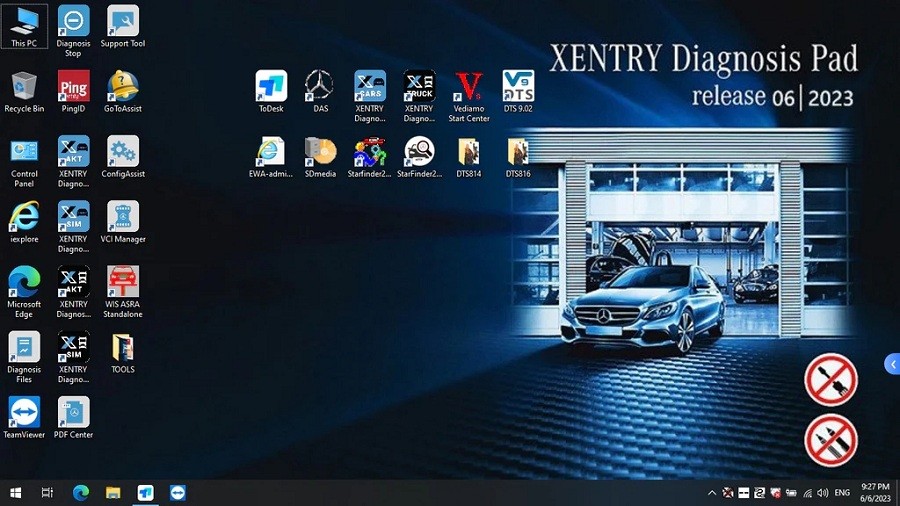
Alt text: DTS Monaco software interface displaying diagnostic options and vehicle parameters
1.2 Key Features of DTS Monaco
DTS Monaco is packed with features that make it a powerful tool for automotive professionals:
- Quick Test: Performs rapid diagnostics of all ECUs in the vehicle.
- Variant Coding: Enables modification of vehicle settings and parameters.
- ECU Flashing: Allows updating and reprogramming of ECU software.
- Diagnostic Services: Provides access to advanced diagnostic routines and data.
- Fault Code Diagnostics: Reads and clears diagnostic trouble codes (DTCs).
1.3 What Sets DTS Monaco Apart from Other Diagnostic Tools?
While there are many diagnostic tools available, DTS Monaco stands out due to its depth of functionality and manufacturer-level access. Unlike generic OBD-II scanners, DTS Monaco can access and modify virtually any parameter within a vehicle’s electronic systems. This level of access is typically reserved for the manufacturer’s internal use, making DTS Monaco a valuable asset for advanced diagnostics and car coding.
2. Who Uses DTS Monaco Within Daimler AG?
DTS Monaco is employed by a variety of professionals within Daimler AG, each leveraging its capabilities for specific tasks.
2.1 Diagnostic Technicians
Diagnostic technicians rely on DTS Monaco to troubleshoot complex issues within vehicle electronic systems. It enables them to accurately pinpoint the root cause of problems and apply the necessary fixes, whether it’s clearing fault codes, recalibrating sensors, or reprogramming ECUs.
2.2 Engineers
Daimler AG engineers utilize DTS Monaco for a wide range of development and testing activities. They use it to:
- Validate new vehicle systems.
- Calibrate ECU parameters.
- Diagnose and resolve engineering-related issues.
- Customize vehicle functions.
According to engineering reports, DTS Monaco offers engineers the ability to fine-tune vehicle performance and features, ensuring they meet stringent quality and performance standards.
2.3 Car Coding Specialists
Car coding specialists use DTS Monaco to customize vehicle functions and enable features that are not activated by default. This can include:
- Activating ambient lighting.
- Enabling video playback while driving.
- Adjusting suspension settings.
- Customizing instrument cluster displays.
Car coding with DTS Monaco allows for personalized vehicle experiences, tailored to individual customer preferences.
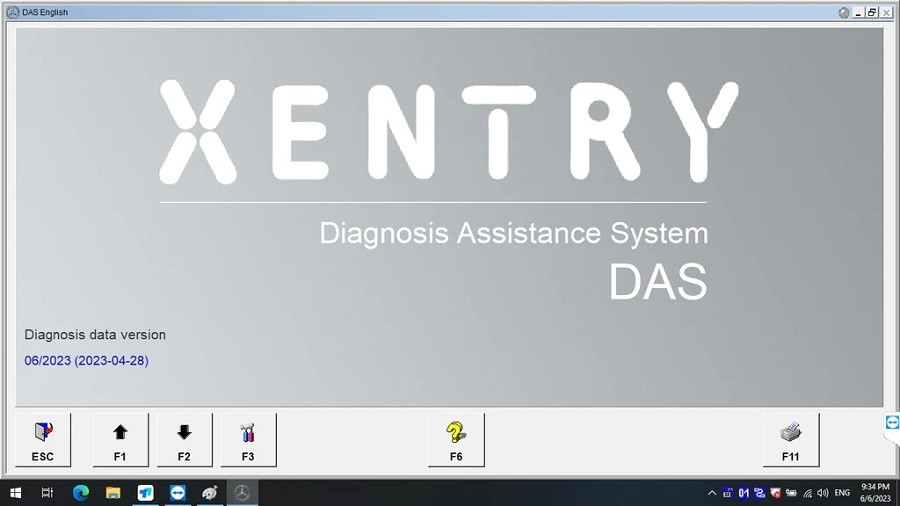
Alt text: Interface of DTS Monaco showing ECU programming options and coding parameters
3. How Is DTS Monaco Used in Vehicle Diagnostics?
DTS Monaco streamlines the vehicle diagnostics process, enabling technicians to quickly and accurately identify and resolve issues.
3.1 Reading and Clearing Fault Codes
One of the primary functions of DTS Monaco is reading and clearing diagnostic trouble codes (DTCs). The software scans all vehicle ECUs and reports any stored fault codes, providing technicians with a starting point for their diagnosis. Technicians can then clear the codes after addressing the underlying issues.
3.2 Live Data Monitoring
DTS Monaco allows technicians to monitor live data from various vehicle sensors and systems. This real-time data provides valuable insights into the operation of different components, helping technicians identify anomalies and potential problems.
3.3 Advanced Diagnostic Routines
DTS Monaco includes advanced diagnostic routines that go beyond basic fault code reading. These routines can perform component tests, system calibrations, and other specialized functions to help diagnose complex issues.
4. How Is DTS Monaco Used in ECU Programming and Flashing?
ECU programming and flashing are critical functions in modern vehicle maintenance and repair. DTS Monaco provides the tools necessary to perform these tasks effectively.
4.1 Updating ECU Software
Daimler AG regularly releases software updates for vehicle ECUs to improve performance, fix bugs, and add new features. DTS Monaco allows technicians to install these updates, ensuring vehicles operate with the latest software versions.
4.2 Reprogramming ECUs
In some cases, it may be necessary to completely reprogram an ECU. This can be due to a corrupted software file, a hardware failure, or the need to install a different version of the software. DTS Monaco provides the tools to perform ECU reprogramming safely and efficiently.
4.3 ECU Cloning
DTS Monaco can also be used to clone ECU data from one unit to another. This is particularly useful when replacing a faulty ECU with a new or used unit. Cloning the data ensures that the replacement ECU operates with the same settings and configurations as the original.
5. What Is Car Coding and How Does DTS Monaco Facilitate It?
Car coding involves modifying the software settings of a vehicle’s ECUs to enable or disable certain features and functions. DTS Monaco is a powerful tool for car coding, offering a wide range of customization options.
5.1 Enabling Hidden Features
Many vehicles have hidden features that are not activated by default. Car coding with DTS Monaco can unlock these features, providing customers with additional functionality. Examples include:
- Activating cornering lights.
- Enabling lane-keeping assist.
- Customizing ambient lighting colors.
- Adjusting the sensitivity of parking sensors.
5.2 Retrofitting Options
Car coding can also be used to retrofit options that were not originally installed on the vehicle. For example, if a vehicle did not come with a rearview camera, it may be possible to install one and then use DTS Monaco to code the ECU to recognize and display the camera feed.
5.3 Personalizing Vehicle Settings
DTS Monaco allows for personalization of various vehicle settings to suit individual preferences. This can include:
- Adjusting the sensitivity of the rain sensor.
- Customizing the behavior of the automatic headlights.
- Changing the language displayed on the instrument cluster.
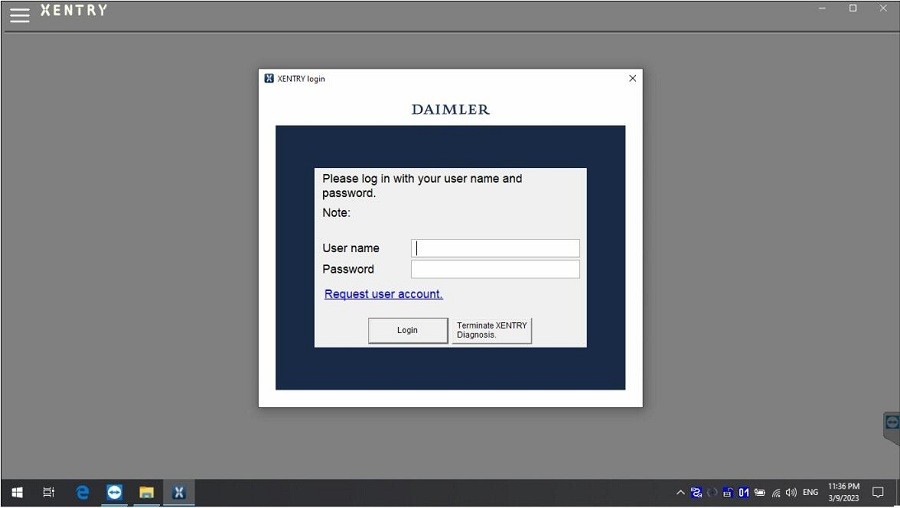
Alt text: Screenshot of DTS Monaco displaying car coding options and customizable parameters
6. DTS Monaco vs. Vediamo: What Are the Key Differences?
DTS Monaco and Vediamo are both engineering software tools used by Daimler AG, but they serve different purposes and have distinct capabilities.
6.1 Vediamo: In-Depth Overview
Vediamo is a diagnostic and engineering software used for in-depth analysis and modification of vehicle ECUs. It provides extensive access to ECU parameters, allowing advanced users to perform tasks such as:
- Reading and writing ECU memory.
- Modifying ECU calibrations.
- Disabling or enabling specific functions.
Vediamo is often used for research and development purposes, as well as for advanced diagnostics and repairs.
6.2 Key Differences
| Feature | DTS Monaco | Vediamo |
|---|---|---|
| Primary Use | Diagnostics, ECU Programming, Car Coding | Advanced Engineering, ECU Modification |
| User Interface | More user-friendly and streamlined | More complex and technical |
| Automation | High level of automation | Requires manual configuration and scripting |
| Data Handling | One-click data saving and module data copying | Limited module single data reading |
| Security | Higher security protocols | Lower security protocols |
| Target Audience | Technicians, Engineers, Car Coding Specialists | Advanced Engineers, Researchers |
6.3 When to Use Each Software
- Use DTS Monaco when: You need to perform routine diagnostics, ECU programming, or car coding tasks. Its user-friendly interface and automated features make it ideal for technicians and car coding specialists.
- Use Vediamo when: You need to perform advanced engineering tasks, such as modifying ECU calibrations or reverse-engineering ECU software. Its in-depth access and flexibility make it suitable for experienced engineers and researchers.
7. What Hardware Is Compatible With DTS Monaco?
DTS Monaco requires specific hardware interfaces to communicate with vehicle ECUs. The most commonly used interfaces are:
7.1 MB Star C4/C5
The MB Star C4 and C5 are diagnostic multiplexers that provide a reliable connection between the computer running DTS Monaco and the vehicle’s diagnostic port. These multiplexers support various communication protocols, including CAN, LIN, and K-Line.
7.2 eCOM Interface
The eCOM interface is a newer diagnostic interface developed by Daimler AG. It offers faster communication speeds and improved security compared to the MB Star C4/C5.
7.3 Considerations for Hardware Selection
When selecting hardware for DTS Monaco, consider the following factors:
- Compatibility: Ensure the hardware is compatible with the vehicles you will be working on.
- Performance: Choose hardware that offers fast communication speeds and reliable performance.
- Security: Select hardware that incorporates the latest security protocols to protect against unauthorized access.
8. Where Can You Get Training on DTS Monaco and Car Coding?
Mastering DTS Monaco and car coding requires specialized training. Several reputable institutions and online platforms offer comprehensive courses to help you develop the necessary skills.
8.1 DTS-MONACO.EDU.VN
DTS-MONACO.EDU.VN provides in-depth training programs designed to help automotive professionals master DTS Monaco and car coding techniques. These courses cover a range of topics, including:
- DTS Monaco software navigation.
- Vehicle diagnostics and troubleshooting.
- ECU programming and flashing.
- Car coding and customization.
DTS-MONACO.EDU.VN also offers hands-on training sessions where you can apply your knowledge to real-world scenarios.
8.2 Other Training Resources
In addition to DTS-MONACO.EDU.VN, there are other resources available for learning DTS Monaco and car coding:
- Vocational Schools: Some vocational schools offer automotive technology programs that include training on diagnostic software and car coding.
- Online Courses: Platforms like Udemy and Coursera offer online courses on automotive diagnostics and programming.
- Industry Conferences: Attending industry conferences and workshops can provide valuable learning opportunities and networking possibilities.
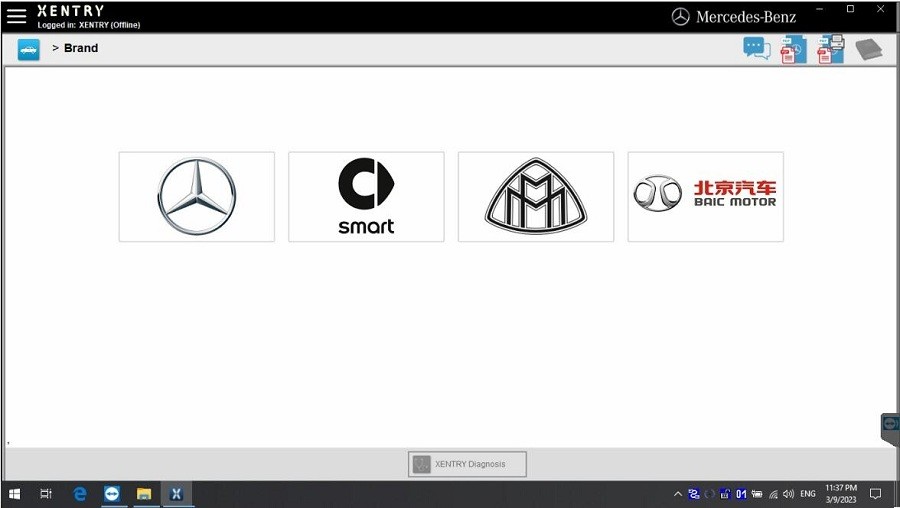
Alt text: Car coding specialist using DTS Monaco to customize vehicle settings
9. What Are the Benefits of Learning DTS Monaco and Car Coding?
Investing time and effort in learning DTS Monaco and car coding can bring numerous benefits to automotive professionals.
9.1 Enhanced Diagnostic Skills
DTS Monaco equips you with advanced diagnostic capabilities, enabling you to quickly and accurately identify and resolve complex issues. This can save time and money for both you and your customers.
9.2 Increased Earning Potential
Car coding is a specialized skill that is in high demand. By mastering DTS Monaco and car coding techniques, you can offer unique services that command premium prices.
9.3 Career Advancement
Proficiency in DTS Monaco and car coding can open doors to new career opportunities within the automotive industry. You may be able to pursue roles such as:
- Diagnostic Technician
- Car Coding Specialist
- Automotive Engineer
- Service Manager
9.4 Staying Ahead of the Curve
The automotive industry is constantly evolving, with new technologies and electronic systems being introduced all the time. Learning DTS Monaco and car coding can help you stay ahead of the curve and remain competitive in the job market.
10. Real-World Applications of DTS Monaco in Automotive Repair
DTS Monaco is used in a variety of real-world scenarios to diagnose, repair, and customize vehicles.
10.1 Case Study: Diagnosing Intermittent Electrical Faults
A Mercedes-Benz C-Class was experiencing intermittent electrical faults that were difficult to diagnose using conventional methods. The technician used DTS Monaco to monitor live data from various sensors and ECUs, eventually identifying a faulty wiring harness that was causing the problem. Replacing the harness resolved the issue and restored the vehicle to normal operation.
10.2 Case Study: Retrofitting a Rearview Camera
A customer wanted to add a rearview camera to their Mercedes-Benz E-Class, which did not come with the option from the factory. The technician installed the camera and then used DTS Monaco to code the ECU to recognize and display the camera feed. This allowed the customer to enjoy the benefits of a rearview camera without having to purchase a new vehicle.
10.3 Case Study: Customizing Ambient Lighting
A customer wanted to personalize the ambient lighting in their Mercedes-Benz S-Class. The technician used DTS Monaco to access the ambient lighting control module and adjust the colors and brightness levels to the customer’s preferences.
11. Common Challenges and How DTS-MONACO.EDU.VN Can Help
While DTS Monaco is a powerful tool, it can also be challenging to learn and use effectively. Some common challenges include:
11.1 Software Complexity
DTS Monaco has a complex interface and a steep learning curve. It can be overwhelming for beginners to navigate and understand all of its features.
How DTS-MONACO.EDU.VN Can Help: DTS-MONACO.EDU.VN offers structured training programs that break down the software into manageable modules. The courses provide step-by-step guidance and hands-on exercises to help you master the software.
11.2 Technical Knowledge
Car coding and ECU programming require a solid understanding of automotive electronics and communication protocols. Without this knowledge, it can be difficult to perform these tasks safely and effectively.
How DTS-MONACO.EDU.VN Can Help: DTS-MONACO.EDU.VN courses cover the fundamental principles of automotive electronics and communication protocols. You will learn about CAN bus, LIN bus, and other communication standards, as well as the basics of ECU architecture and programming.
11.3 Security Risks
Improper car coding or ECU programming can have serious consequences, including:
- Damaging vehicle systems.
- Voiding the vehicle warranty.
- Creating safety hazards.
How DTS-MONACO.EDU.VN Can Help: DTS-MONACO.EDU.VN emphasizes safety and security in its training programs. You will learn how to perform car coding and ECU programming safely and responsibly, minimizing the risk of damage or harm.
12. Future Trends in Automotive Diagnostics and Car Coding
The automotive industry is undergoing rapid transformation, with new technologies and trends emerging all the time. Some key trends in automotive diagnostics and car coding include:
12.1 Over-the-Air (OTA) Updates
OTA updates allow vehicle manufacturers to remotely update ECU software without requiring a visit to a service center. This technology is becoming increasingly common, enabling manufacturers to quickly deploy bug fixes, performance improvements, and new features.
12.2 Artificial Intelligence (AI) in Diagnostics
AI is being used to develop advanced diagnostic systems that can analyze vehicle data and predict potential problems before they occur. These systems can also provide technicians with step-by-step guidance on how to resolve complex issues.
12.3 Cybersecurity
As vehicles become more connected and software-driven, cybersecurity is becoming an increasingly important concern. Car coding and ECU programming must be performed securely to prevent unauthorized access and malicious attacks.
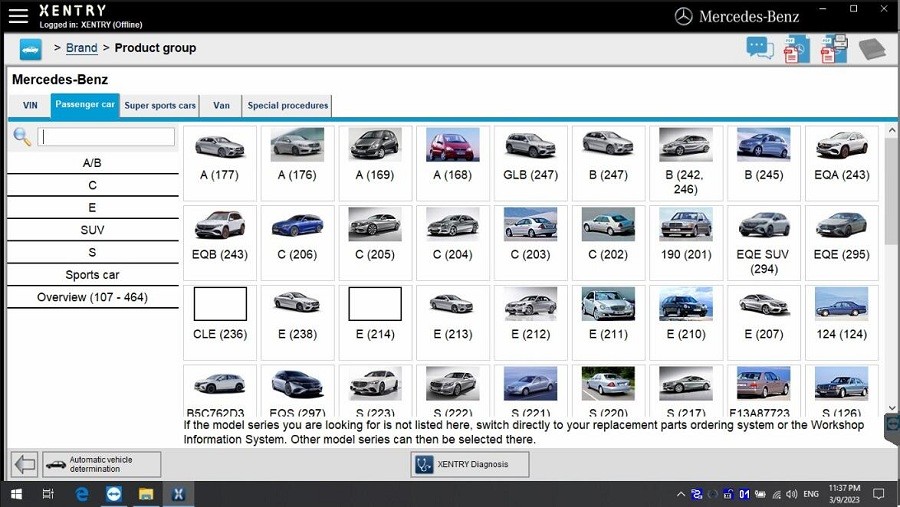
Alt text: Automotive technician using DTS Monaco to diagnose a vehicle’s electronic system
13. How to Stay Updated With the Latest Information on DTS Monaco
Staying informed about the latest developments in DTS Monaco and car coding is essential for automotive professionals. Here are some ways to stay updated:
13.1 Follow Industry Blogs and Forums
Numerous online blogs and forums are dedicated to automotive diagnostics and car coding. Following these resources can provide valuable insights and information.
13.2 Attend Industry Events
Industry events such as trade shows and conferences offer opportunities to learn about the latest technologies and network with other professionals.
13.3 Subscribe to Newsletters
Many automotive publications and training providers offer email newsletters that provide updates on DTS Monaco and car coding.
14. Practical Tips for Using DTS Monaco Effectively
To get the most out of DTS Monaco, here are some practical tips:
- Back Up Vehicle Data: Before making any changes to vehicle settings, always back up the original data. This will allow you to restore the vehicle to its original configuration if something goes wrong.
- Follow Best Practices: Adhere to industry best practices for car coding and ECU programming to minimize the risk of damage or harm.
- Stay Organized: Keep your DTS Monaco software and hardware organized to prevent confusion and errors.
- Practice Regularly: The more you use DTS Monaco, the more proficient you will become. Practice regularly to develop your skills and confidence.
15. The Role of DTS Monaco in Ensuring Vehicle Quality and Performance
DTS Monaco plays a critical role in ensuring the quality and performance of Daimler AG vehicles. By providing advanced diagnostic and programming capabilities, DTS Monaco helps technicians and engineers:
- Identify and resolve issues quickly and accurately.
- Keep vehicle software up-to-date.
- Customize vehicle settings to meet customer preferences.
- Ensure vehicles operate safely and reliably.
16. Why Choose DTS-MONACO.EDU.VN for Your Training Needs?
DTS-MONACO.EDU.VN stands out as a premier training provider for DTS Monaco and car coding. Here’s why you should consider them for your training needs:
16.1 Expert Instructors
DTS-MONACO.EDU.VN employs experienced instructors who are experts in DTS Monaco and car coding. They bring real-world knowledge and practical skills to the classroom, ensuring you receive the highest quality training.
16.2 Comprehensive Curriculum
DTS-MONACO.EDU.VN offers a comprehensive curriculum that covers all aspects of DTS Monaco and car coding. From basic diagnostics to advanced programming, you will learn everything you need to succeed.
16.3 Hands-On Training
DTS-MONACO.EDU.VN emphasizes hands-on training, providing you with the opportunity to apply your knowledge to real-world scenarios. You will work with actual vehicles and use DTS Monaco to perform diagnostics, programming, and car coding tasks.
16.4 State-of-the-Art Facilities
DTS-MONACO.EDU.VN has state-of-the-art facilities equipped with the latest tools and equipment. You will train in a professional environment that simulates a real-world automotive repair shop.
16.5 Ongoing Support
DTS-MONACO.EDU.VN provides ongoing support to its graduates. You will have access to a network of instructors and fellow students who can provide assistance and guidance as you progress in your career.
17. How DTS Monaco Is Contributing to the Future of Automotive Technology
DTS Monaco is at the forefront of automotive technology, playing a key role in shaping the future of the industry. Its advanced diagnostic and programming capabilities are essential for:
17.1 Developing Autonomous Vehicles
DTS Monaco is used to develop and test autonomous vehicle systems, ensuring they operate safely and reliably.
17.2 Improving Electric Vehicle Performance
DTS Monaco is used to optimize the performance of electric vehicle batteries, motors, and control systems.
17.3 Enhancing Vehicle Cybersecurity
DTS Monaco is used to enhance vehicle cybersecurity, protecting against unauthorized access and malicious attacks.
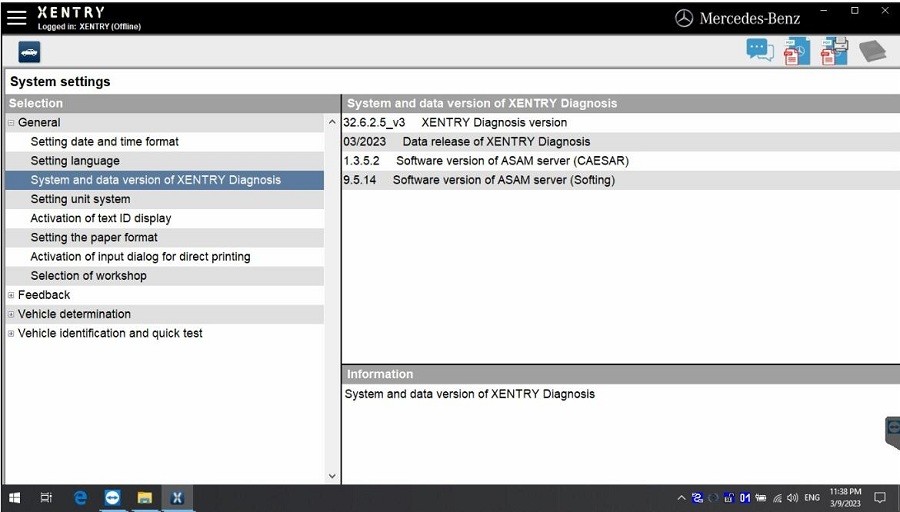
Alt text: Engineer using DTS Monaco to analyze data from an electric vehicle’s battery management system
18. DTS Monaco and the Importance of Regular Software Updates
Regular software updates are crucial for maintaining the performance, security, and compatibility of DTS Monaco. Daimler AG releases updates periodically to:
18.1 Fix Bugs and Vulnerabilities
Software updates often include bug fixes and security patches that address known vulnerabilities.
18.2 Improve Performance
Updates can improve the performance and stability of the software, making it more efficient and reliable.
18.3 Add New Features
Updates may include new features and capabilities that enhance the functionality of DTS Monaco.
18.4 Maintain Compatibility
Updates ensure that DTS Monaco remains compatible with the latest vehicle models and communication protocols.
19. The Ethical Considerations of Car Coding
Car coding can be a powerful tool, but it’s important to use it ethically and responsibly. Some ethical considerations include:
19.1 Transparency
Be transparent with customers about the changes you are making to their vehicles. Explain the benefits and risks of car coding and obtain their informed consent.
19.2 Safety
Never perform car coding that could compromise the safety of the vehicle or its occupants.
19.3 Legality
Ensure that any car coding you perform complies with local laws and regulations.
19.4 Warranty
Be aware that car coding may void the vehicle warranty. Inform customers of this risk before performing any coding.
20. Frequently Asked Questions (FAQs) About DTS Monaco
20.1 What is DTS Monaco used for?
DTS Monaco is primarily used for vehicle diagnostics, ECU programming, and car coding within Daimler AG. It allows technicians and engineers to access and modify vehicle electronic systems.
20.2 Is DTS Monaco easy to learn?
DTS Monaco has a steep learning curve due to its complex interface and advanced features. However, with proper training and practice, it can be mastered.
20.3 What hardware is required to use DTS Monaco?
DTS Monaco requires a compatible diagnostic interface, such as the MB Star C4/C5 or the eCOM interface, to communicate with vehicle ECUs.
20.4 Can DTS Monaco be used on any vehicle?
DTS Monaco is primarily designed for use on Mercedes-Benz vehicles. While it may work on other brands, its functionality may be limited.
20.5 Is car coding legal?
Car coding is legal in most jurisdictions, but it’s important to comply with local laws and regulations.
20.6 Can car coding void my vehicle warranty?
Yes, car coding may void your vehicle warranty, depending on the manufacturer’s policies.
20.7 Where can I get training on DTS Monaco?
DTS-MONACO.EDU.VN offers comprehensive training programs on DTS Monaco and car coding.
20.8 What are the benefits of learning DTS Monaco?
Learning DTS Monaco can enhance your diagnostic skills, increase your earning potential, and open doors to new career opportunities.
20.9 How often does DTS Monaco get updated?
Daimler AG releases updates for DTS Monaco periodically to fix bugs, improve performance, and add new features.
20.10 Is DTS Monaco the same as Vediamo?
No, DTS Monaco and Vediamo are different software tools with distinct capabilities. DTS Monaco is used for diagnostics, programming, and car coding, while Vediamo is used for advanced engineering and ECU modification.
Final Thoughts
DTS Monaco is a powerful and versatile tool that plays a crucial role in the automotive industry. Whether you’re a technician, engineer, or car coding specialist, mastering DTS Monaco can enhance your skills, increase your earning potential, and open doors to new career opportunities. Explore the training programs at DTS-MONACO.EDU.VN to take your automotive expertise to the next level. By understanding its applications, benefits, and ethical considerations, you can leverage DTS Monaco to drive innovation and excellence in the automotive world.
Are you ready to elevate your automotive repair skills and master DTS Monaco? Visit DTS-MONACO.EDU.VN today to explore our comprehensive training programs and unlock your potential in car coding and advanced diagnostics. Contact us at Address: 275 N Harrison St, Chandler, AZ 85225, United States or WhatsApp: +1 (641) 206-8880 for more information.
